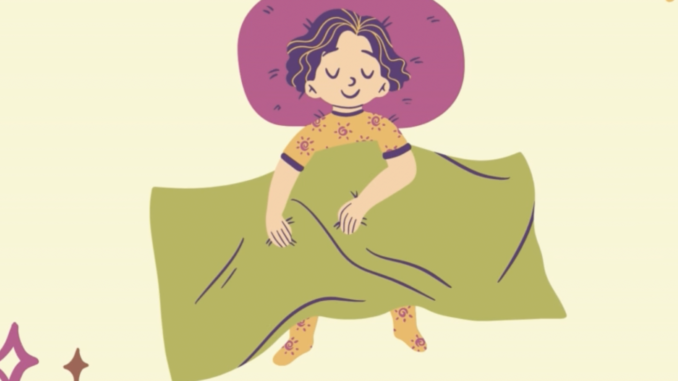
By: Audrey Mendenhall
Many Dominican students are struggling to sleep, and it is with a good reason. Between classes, work, and family responsibilities, students are struggling to get their sleep.
According to a survey of Dominican students, only 13% of those surveyed (about 150 students) are getting more than seven hours of sleep per night.
Students have different reasons for losing their sleep with the main reason being homework.
On average, students spend approximately six hours of their time on homework after classes. For students majoring in the sciences, the time spent on homework almost doubles.
Student athletes become more pressed for time by spending approximately three hours on practices with one every day followed by an average of six hours. This leaves very little time for students to sleep.
Athletes are also pressured to prioritize practice and find time to do homework.
According to the CDC (Central for Disease Control and Prevention), “direct consequences of poor sleep among college students include increased tension, irritability, depression, confusion, reduced life satisfaction, or poor academic performance” (Mbpus, Nili, Mohamed, Dwinedi, 2022). These are obvious issues when it comes to class performance.
Students who do not get any sleep cannot work well. Over 60% of students claim to pull at least one “all-nighter” per week.
This leads to extreme fatigue the next day and causes lasting effects over the next few days. These “all-nighters” can be eliminated in student’s lives to effectively sleep well throughout the week.
However, not all students have a difficult time managing sleep.
Alexa Bauman, a freshman majoring in psychology, is a softball player at Dominican and sleeps for about nine hours per night. While she averages higher than most, she acknowledges the differences of when she gets less sleep.
“When I get a full night of rest, I feel energized, awake, and ready to conquer the day,” said Bauman. “When I do not get a full night of rest, I am more tired throughout the day and lack energy.
Bauman says that she does feel tired when going to morning or night practice but manages her sleep schedule well.
“Softball does not really affect my sleep, unless it is an early morning practice or game, or we have a late-night practice,” said Bauman. “I go to bed around 9:30 p.m. on a normal day and 10 to 10:30 p.m. on practice day.”
Sleep is important for college students, but it is not easy most of the time.
According to the survey, most students’ first class is between 8 a.m. and 10 a.m. Students also struggle to sleep when trying to find times for eating and getting ready for school.
To get more sleep, students need to manage their time effectively. It is highly recommended to keep a calendar to keep track of all activities.
Other advice is to budget homework and ask professors for homework in advance to split assignments up. It becomes more effective to split your workload rather than pile it into one day.
Read more about sleep from the CDC here.
